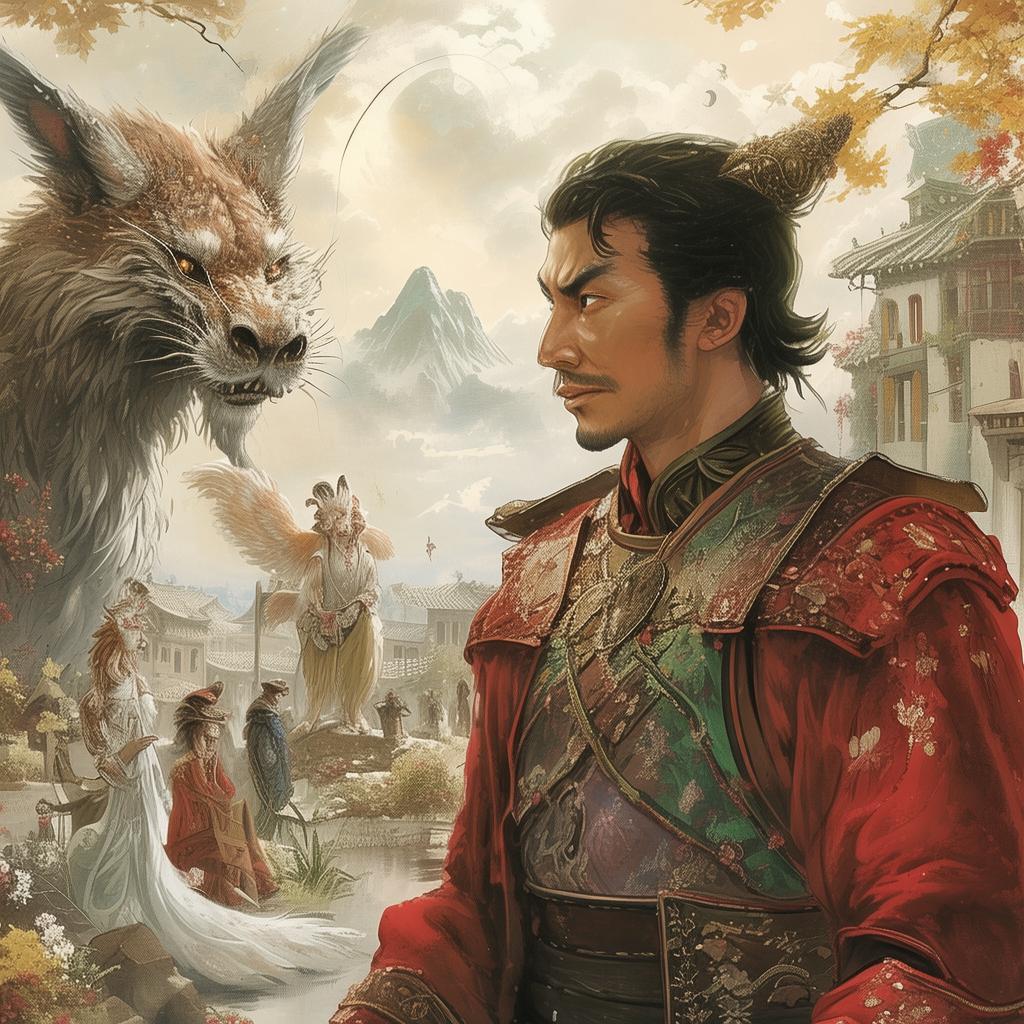Whispers of the Labyrinth: The Paradox of the Elders
In the heart of the ancient city of Luminara, where the cobblestone streets whispered tales of yore, there stood a labyrinth known only to the elders. It was said that within its walls, the wisdom of the ages was preserved, a repository of truths and paradoxes that could change the very fabric of reality. The labyrinth was a place of legend, a place that no one dared to enter, for it was said that those who ventured inside would never return the same.
Amidst the bustling market square, young scholar Liang, with his eyes alight with curiosity and his mind brimming with questions, overheard the elders discussing the labyrinth. They spoke of a paradox that had baffled thinkers for centuries—a riddle that could unlock the deepest secrets of the universe. Liang, driven by a thirst for knowledge, decided that he would be the one to solve it.
With the elders' blessings, Liang approached the labyrinth's entrance, a massive stone archway adorned with intricate carvings of ancient symbols. As he stepped through, the world around him seemed to shift, the air growing colder, the light dimmer. The labyrinth was a maze of towering walls, each one inscribed with cryptic messages and enigmatic puzzles.
Liang's first challenge came in the form of a riddle etched into the stone: "I am not alive, yet I grow; I don't have lungs, but I need air; I don't have a mouth, yet water kills me. What am I?" Stumped, Liang pressed on, his resolve unwavering.
The labyrinth was a labyrinth of the mind, a place where the rules of reality were rewritten. Liang encountered many paradoxes, each more perplexing than the last. One moment, he would be standing in a room filled with mirrors, each reflecting his own image, yet he could not see his own reflection. Another, he would find himself in a room where time seemed to stand still, and he was unable to move forward or backward.
As he delved deeper, Liang realized that the labyrinth was not just a physical space, but a reflection of his own mind. Each paradox was a piece of himself, a hidden truth waiting to be uncovered. He began to question his own existence, his purpose, and the nature of reality itself.
One of the elders, an ancient figure with eyes that seemed to pierce through time, appeared before him. "You seek the truth," the elder said, his voice echoing through the labyrinth. "But remember, truth is a paradox. It is both what you see and what you do not see."
Liang's journey continued, and he encountered more paradoxes, each more challenging than the last. He found himself in a room where he was both a man and a child, both alive and dead. He was in a room where he could see everything yet knew nothing. He was in a room where he could speak but no one could hear him.
As the labyrinth twisted and turned, Liang's mind began to unravel. He felt himself slipping into a void, a place where logic and reason no longer applied. He was losing his grip on reality, and yet, it was in this loss that he found clarity.
Finally, Liang reached the heart of the labyrinth, a chamber where the walls were made of pure light. In the center stood an ancient tome, its pages glowing with an otherworldly light. The elder appeared once more, and Liang approached the tome, his heart pounding.
"Read it," the elder commanded. Liang opened the book, and his eyes were drawn to a single sentence: "The paradox is the key to reality."
Liang realized that the labyrinth had been a mirror, reflecting his own mind and his own paradoxes. The key to understanding reality was to embrace the paradoxes within himself. He had been searching for the truth outside of himself, but it was all around him, within him.
With newfound wisdom, Liang stepped out of the labyrinth, the world around him feeling different, yet the same. He had solved the paradox, not through intellectual prowess, but through the journey of self-discovery.

The elders watched as Liang left the labyrinth, their eyes filled with respect and admiration. They knew that he had returned a changed man, a man who had learned that truth was not a destination, but a journey.
Liang returned to Luminara, his story spreading like wildfire through the city. The labyrinth, once a place of fear and mystery, became a symbol of enlightenment and self-discovery. And Liang, the young scholar who had once sought the wisdom of the elders, had become a legend in his own right, a guide to those who sought to unravel the mysteries of their own minds.
In the end, the labyrinth was not a place of escape, but a mirror reflecting the infinite complexity of the human spirit. And in that reflection, the true paradox was revealed: that the journey to understand oneself is the journey to understand the universe.
✨ Original Statement ✨
All articles published on this website (including but not limited to text, images, videos, and other content) are original or authorized for reposting and are protected by relevant laws. Without the explicit written permission of this website, no individual or organization may copy, modify, repost, or use the content for commercial purposes.
If you need to quote or cooperate, please contact this site for authorization. We reserve the right to pursue legal responsibility for any unauthorized use.
Hereby declared.









